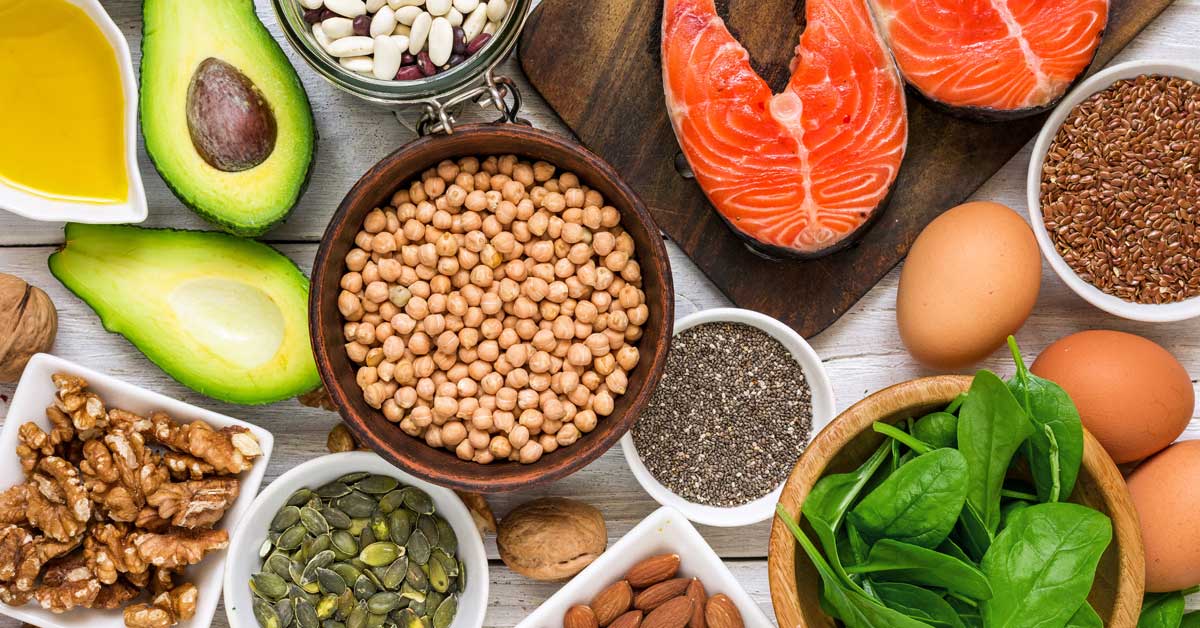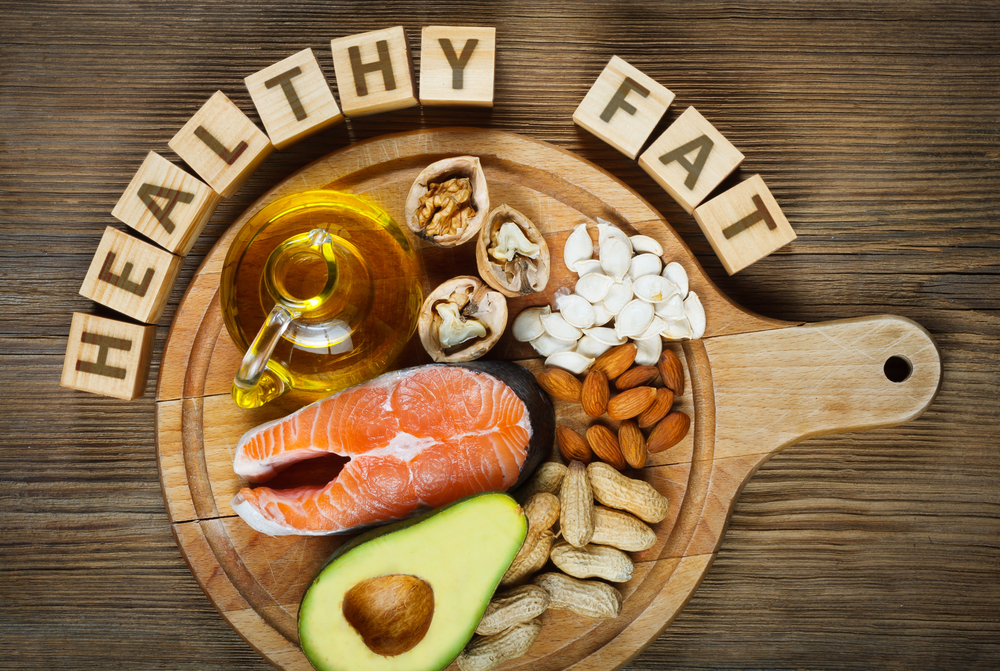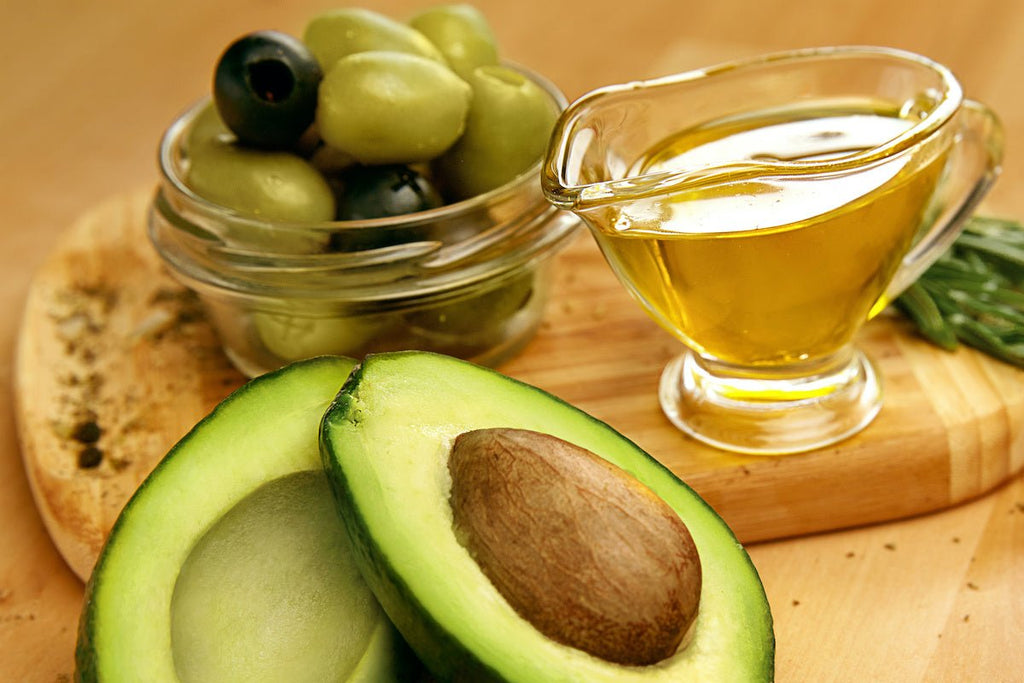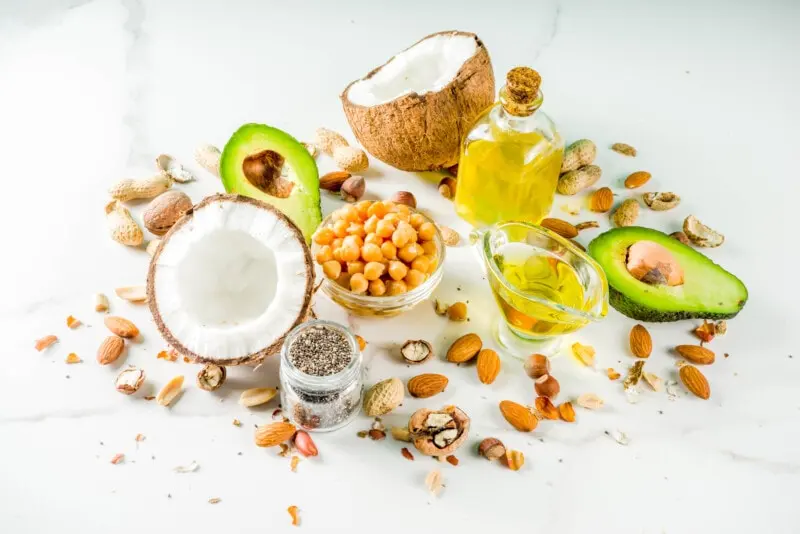People who want to lose weight usually start by cutting back on fats in their diet, which is incorrect because they need healthy fats. However, since vegetarians do not eat meat, fish, or eggs, it might be challenging to locate appropriate sources of fat for them. Non-vegetarians, on the other hand, can easily obtain their fat content from meat. Thus, this post is ideal for vegetarians who wish to learn about all the foods that contain a healthy quantity of fats.
Not every meal that contains fats is beneficial to your health. Alternatively, some could include harmful fat, or trans-saturated fat. These fats raise your body's cholesterol levels and are a major factor in the weight gain you experience. So allow us to assist you in incorporating healthy fats into your diet.
We've included all the information below, which you should read immediately. If you're a vegetarian, scroll down to learn how to maintain your health and acquire enough beneficial fats. Continue reading!
Concerning Fats
In order to obtain the necessary quantity of fat in their diet, vegetarians typically consume large amounts of butter, cream, cheese, and other fatty foods. Conversely, health-conscious people wind up avoiding them completely. You shouldn't choose one of the two alternatives for your health. The fats in your diet can originate from cheese, butter, or ghee, but they are classified as harmful or trans-saturated fat. Your body weight and cholesterol level both rise as a result of these fats.
Why Do We Need Fats in Our Bodies?

The idea that fat simply accumulates to make you appear obese is untrue. This only occurs when you eat more fat than is necessary. Fats are vital to your body in the same way that proteins, minerals, calcium, and vitamins are. Your body benefits from fats for a number of reasons, including.
-
Better than proteins and carbs, fats are a great source of energy. You get nine energy calories from 1 gram of fat.
-
Your body stores energy in fat. Fats burn into energy to provide you power during intense exercise or fasting.
-
Certain vitamins are fat soluble, including vitamins A, D, E, and K. These vitamins are easily absorbed by the colon when fat is present.
-
Healthy body cell development is another benefit of fats. They serve as a shield for every single cell. Fats support the healthy growth of brain cells in addition to body cells.
-
Body fat controls body temperature.
-
Skin that is tainted with fat seems more radiant and healthy. You get healthy hair as well.
-
Your body's most important organs, including your heart, kidneys, and intestines, are shielded by fats. They surround these organs in a layer that serves as a cushion to protect them from harm.
In cuisine, there are three different kinds of fats:
-
fats that are saturated (SFAs)
-
Fatty acids that are trans-saturated
-
Monounsaturated fatty acids (MUFAs) and polyunsaturated fatty acids (PUFAs) are two types of unsaturated fatty acids.
Bad Fat
Saturated and trans-saturated fats are bad fats that are mostly bad for your health.
In addition to gaining weight, they raise cholesterol levels, which raise the risk of heart attacks and other heart problems.
Saturated fats may be found in fatty meat cuts, fried meals, coconut milk, hard cheese, butter, cookies, and cakes.
Healthy Fat

Both mono- and polyunsaturated fats are beneficial to your health and have anti-inflammatory qualities.
They have anti-inflammatory qualities, reduce blood cholesterol, and inhibit blood clotting.
Omega-3 and omega-6 fatty acids are further categories for polyunsaturated fatty acids.
-
To maintain good health, you should essentially have access to both of these fatty acids in your normal diet. Rich dairy sources of healthy fats include whole milk and full-fat yogurt.
-
Blogger Sarah talked about her experience switching to a diet higher in healthy fats: "A few years ago I discovered a little secret about all of those fat free and reduced fat foods I was eating... they add a ton of sugar and preservatives to make them taste good." The majority of the meal contained twice as many calories as its full-fat counterpart when comparing the calories. "I took a risk and did something crazy," she said. My diet was altered, and I stopped eating anything other than calorie counts and—gasp—full-fat items. What do you think? My food tasted much better and I didn't gain any weight.
1. Nuts, Seeds, And Almonds
Rich in omega 3 fatty acids, which are also present in fatty fish and are beneficial to human health, almonds, walnuts, and cashew nuts are a great source of these nutrients. They raise the amount of healthy cholesterol.
The amount of various fatty acids in different kinds of nuts, including almonds, was shown in a recent study. By lowering the body's levels of LDL, or bad cholesterol, these saturated, polyunsaturated, and monounsaturated fatty acids contribute to overall health maintenance. The graph below shows the precise amount of fatty acid content in nuts.
-
Try reaching for a fistful of nuts whenever you become hungry in between meals rather than cookies, cakes, pastries, or cereal bars. In moderation, dark chocolate-covered nuts can also serve as a nutritious snack.
-
With a somewhat nutty flavor, hemp, pumpkin, chia, and sunflower seeds may be dry-roasted and added to baked dishes, cereal, and salads.
-
Nuts are high in nutrients and will help you feel fuller for longer.
-
An abundant source of omega-3 lipids are flax seeds. These seeds can be eaten whole or processed into a fine powder and kept in an airtight jar.
-
Mix with milk or sprinkle over your favorite smoothies. The greatest and healthiest source of fat is this one.
-
Nut butters, high in protein, fiber, good fats, vitamins, and minerals, are made by grinding roasted nuts.
2. Oils From Plants
Rich and healthful sources of fat in meals include canola, olive, vegetable, and sunflower oils.
In a poll involving one thousand Americans, it was shown that although five percent thought olive oil was hazardous, 65 percent thought it was good for one's health. 17% said it had no influence on a person's physique or health, and 14% were unsure of its advantages or disadvantages.
-
When cooking, use these oils (with the exception of olive oil, which is best consumed raw). For every person you are cooking for, use one teaspoon of oil.
-
Additionally, you may add a teaspoon or two to your salad dressing.
-
Omega-3 fatty acids abound in flaxseed oil, however heat causes it to degrade, thus frying is not recommended. It may be added to smoothies or salads.
-
If you enjoy ghee, consider making your own. Compared to those purchased from the market, they are far healthier.
-
Healthy unsaturated fats are abundant in tahini, which is made using sesame seeds and olive oil.
3. Soy-based Legumes

Omega-6 fatty acids, which soya beans are high in, lower the risk of cardiovascular disease.
4. Mayonnaise
Another excellent source of unsaturated fat is mayonnaise.
-
Examine the label before you buy, always.
-
You may use mayonnaise instead of butter or cheese when spreading it on your sandwiches.
5. Tofu
Tofu is soy-based cottage cheese, often known as paneer. It has a flavor that is nearly identical to milk-based paneer. It is among the healthiest fat sources, particularly for polyunsaturated fats, which have the potential to control blood sugar levels.
6. Soy Milk
This is an additional excellent source of polyunsaturated fat that may alleviate the signs and symptoms of diabetes, heart disease, and other conditions. You may alos read this: Guide to Cooking Tasty Roast Chicken
7. Corn
Another excellent source of unsaturated fat that may lower cholesterol and reduce the chance of cardiovascular disease development is corn oil.
8. Olives And Avocados

Mono-unsaturated fats, which are abundant in avocados and olives, may offer protection against heart disease.
-
Eat one-half of an avocado each day. They strengthen your memory and are beneficial to your heart.
-
Avocados have soft, green flesh that is high in unsaturated fat.
-
Mash avocados to make a tasty and nutritious salad dressing, sandwich spread, or even just to eat raw with a little salt and pepper.
-
Monounsaturated fat from olives makes them another heart-healthy fruit. They assist in reducing cholesterol levels.
-
There are just 15 grams of fat in 100 grams of olives.
-
Add olives to your salad or use them as a topping for your spaghetti.
9. Produce
In general, vegetables don't contain fat. However, frying and heating veggies increases their fat content, which is bad.
You may bake, brush with a little olive oil, or stir-fry vegetables to prepare them.








